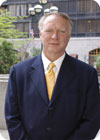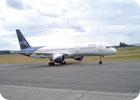When Your CEO Travels Abroad

Advise your CEO to stay alert when traveling and empower him or her with the knowledge to be aware, says Mike McCann.
Give him some good advice about how he or she can mitigate trouble from pickpockets to terrorists. And, if anyone has advice to share, it’s Michael McCann, former chief of security of the United Nations and head of McCann Protective Services, a New York-based executive protection firm.
Effective security precautions require a conscious awareness of one’s environment, as well as the need to exercise prudence, judgment and common sense. This is especially true where the VIP business traveler must acclimate to different cultures, customs and laws.

Before your CEO’s plane leaves the country, make sure he informs corporate security of his detailed travel plans.
Cut the chatter – When traveling on business, indiscreet chatter may get the VIP and the company in trouble. In this electronic age, even the walls have ears, and although one can be unaware that someone is listening, you never know. Letting an accidental bit of information slip, or an errant report, fax or e-mail, could be all that it takes to make a rival’s day.
Broadcasting the “Bling-bling” – Many American business travelers are committed to broadcasting their affluence with flashy jewelry and actions. Maintain a low-key, non-attention getting demeanor so that you can blend into the crowd. Leave the expensive gold watch at home along with the designer luggage.
Being Distracted by Technology – Chatting on a cell phone while traveling through unfamiliar international terrain means you’re not focused on the here and now. You can’t be alert to your surroundings and assess potential danger if you’re answering text messages, working on your notebook computer or talking on your phone.
Wallet Overload – Many executives fail to clean out their wallet before journeying overseas. When traveling, you should only take a few credit cards and leave all non-essentials at home including gym membership cards and personal photos. Carry a minimum of cash and use credit cards and travel checks along with a money belt that can be worn under your clothes.
Enraptured by the Lure of the Penthouse Suite – Corporate executives often like the expensive suites on the top floors. However, hotels in other countries do not meet the same safety standards as the United States and being on the highest floor can be the most dangerous place to be. It’s important to know the fastest exit routes available in the hotel you’re staying at. The optimal floors to stay on are between the 3rd and the 5th floor. In case of fire, ladders will be able to comfortably reach you there. Do not take a room in the back of the building. It’s important you are able to know your way out of the building at 3 am when the lights are out and the hall is filled with smoke.
Broadcasting Country of Origin – Leave the Yankee cap at home, and don’t wear overtly American brand labels on your clothing. Corporate logos are to be avoided and don’t put your name and home address on the exposed portion of your luggage tag. Place a copy of this info inside your luggage bag that includes your office address and phone number rather than your home information. Rather than renting a big American car, use a car that is local to the country you’re visiting.
Over-packing – Travel with carry-on luggage only. Waiting around in a foreign airport for luggage signals you as a mark, and if you lose it you’re the last person standing at the airport. Carry a lap top bag that doesn’t look like a traditional computer bag.
Failing to Remain Continually Vigilant – Before traveling, find out about the local surroundings, customs and conditions. Learn what crime problems exist – whether it is pick pocketing or terrorism - where you are visiting. Know the car model and driver name of your chauffeur before you get into a car. Provide a different name than yours such as your mother’s maiden name or your wife’s maiden name to put up on the sign at the airport exit so that you cannot be followed or tracked. Travel in pairs, and only take direct flights.
Failure to Duplicate – Carry an extra copy of your photocopied passport in your luggage. Leave a copy of your official ID information in your home and office including driver’s license and credit cards.
Not Being Medically Prepared – Healthy traveling necessitates carrying an ample supply of prescription medicines along with the original container should a refill be necessary. Learn what medical coverage you have in the country you’re visiting and whether it applies to emergency care.
Failure to Communicate – Before departing, set up in advance the time you will call your home and office each day. Make sure you have your emergency contact list updated and leave a copy of your schedule at home and at the office. Be sure to carry a business card from the hotel with you at all times. Many executives travel so much and suffer fatigue, they simply forget where they checked into. If you are traveling in a country and do not know the language you can show the card to an authorized cab driver or the police. Keep contact information for vital organizations handy including the American Consulate and the local police and fire department.
Looking for a reprint of this article?
From high-res PDFs to custom plaques, order your copy today!




